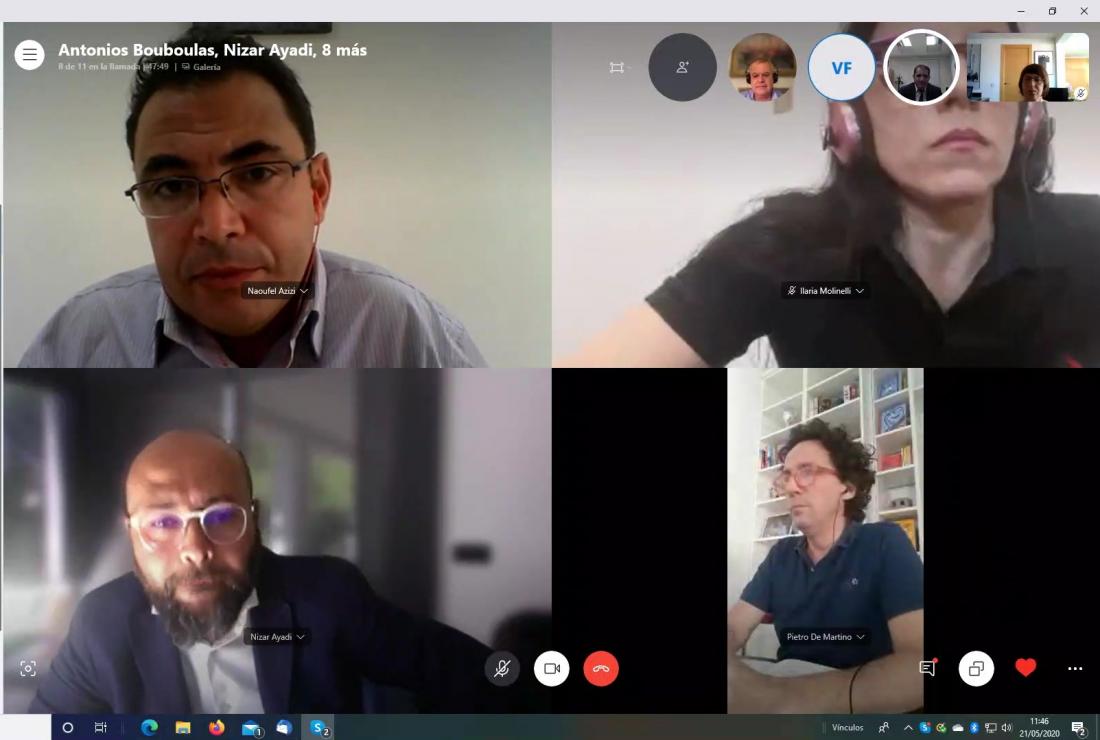IPMED project launches online survey to assess the needs of SMES and start-ups in the use of intellectual property rights

In a virtual meeting of all IPMED Partners’ representatives held last week, the projects’ teams in the involved countries exchanged views on written procedures to continue IPMED activities during the COVID-19 restrictions.
The meeting responded to the desire expressed by all concerned partners to find ways forward on IPMED work during the current circumstances.
Several entities and projects had underscored the challenges involved in maintaining proper consultations with officials and other stakeholders, during the pandemic. Therefore the partners invited to conduct the needs assessment survey which is considered the baseline for the implementation of the rest of activities in IPMED project, and exchange information through virtual platforms until regular in-person gatherings can resume.
By conducting the online survey, IPMED team will be able to collect valuable insights from targeted groups and gain data in real time. The team will therefore be able to learn from the results and turn the data into useful content to further engage with the targeted audience.
The survey consists of a series of questions designed carefully to assess the current understanding of IP services among SMEs and startups, especially those run by young and women entrepreneurs and to identify the difficulties the SMEs face while using the services.
Moreover, the partners’ representatives agreed on drawing a clear and effective methodology for conducting some of the awareness sessions using virtual platform tools.
The awareness sessions will target potentially innovative start-ups and young and women entrepreneurs in order to facilitate access to Intellectual Property Rights (IPR), enhance commercialization, and strengthen IPR-related knowledge and awareness.
IPMED project is implemented by a consortium of organizations where JEDCO in Jordan is the leader, and in partnership with Thessaloniki Chamber of Commerce and Industry in Greece, FILSE in Italy, Agora Institute in Spain and Tunis Chamber of Commerce and Industry in Tunisia. The project's budget is 1.194 million euros, funded by the EU under the Cross-Border Cooperation Programme for the Mediterranean Basin within the European Neighborhood Instrument (ENI CBC MED), to develop small- and medium-sized enterprises (SMEs), promote economic and social development and support innovative entrepreneurs’ projects.









